Some Finer Points of Hydration
There is no better time than the middle of the summer to discuss the importance of good hydration! I have been eagerly awaiting this post, as I knew that it would be an excellent reminder to myself of how and why to keep my hydration levels optimal. Guest poster Alison of Pennythoughts (soon to be WholesomeGoodness), always shares so eloquently and knowledgeably about health and nutrition issues, and this post is no exception!
Guest Post by Alison
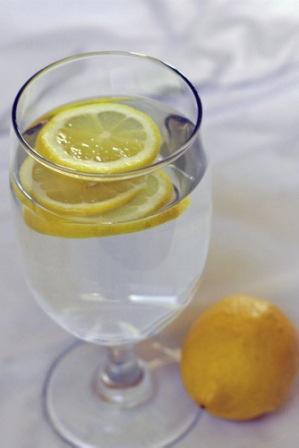
Every health-conscious person knows that proper hydration is essential for wellbeing. At 55 to 65% water, our bodies need the universal solvent for every conceivable function. We’ve heard this for years, of course, just as we’ve heard the eight-glasses-a-day mantra. But did you know that there is more to hydration than haphazardly downing 64 ounces of water every 24 hour period?
First, many alternative healthcare practitioners believe we need much more water than that. Beyond sheer volume, however, timing and quality matter too. Here are a few ways to keep your body running at its properly hydrated best.
Prioritize Morning Hydration
Because the body becomes dehydrated overnight, it is especially important to drink sufficient water in the morning. Donna Gates, author of The Body Ecology Diet, recommends drinking half of your minimum daily water intake by mid-morning.
Following the most recent formula of drinking half your body weight (in pounds) in ounces of water per day, this means that a 140 pound woman would aim for at least 4 to 5 cups of water by 10:00 a.m. (she would need a total of almost 9 cups, or 70 ounces, by the end of the day).
I find that observing this rule helps me tremendously. I feel less hungry and experience fewer headaches later in the day by drinking so much in the early morning. If I wait until I feel thirsty, which is usually sometime after lunch, I find I’m fighting an uphill battle to rehydrate my body.
Drinking this much water first thing in the morning doesn’t come naturally to me, but by writing a little note to myself, I can make sure it happens. I try to drink two cups of water immediately upon awakening. Then, I refill my glass and sip it as I go about my morning routine. I check up on my progress by keeping an eye on the time. Here are a few other ideas for boosting morning hydration:
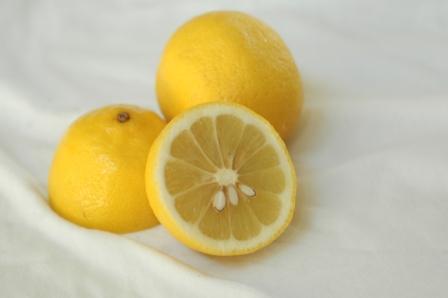
- Wake up with warm, lemony water. About 15 to 30 minutes before breakfast, squeeze the juice of a fresh lemon into a mug of warm water. Not only will this combination delight your taste buds, making it infinitely easier to drink water when you may not feel thirsty, it can help you have a morning bowel movement by stimulating peristalsis, prepare your digestive system for food, and help alkalize the body (again, very important in the mornings because the body becomes more acidic overnight). This practice is recommended by many health gurus. I love it! I use a large mug, so I can get an extra 12 ounces of water in the morning with this simple and delicious step.
- Eat leftover soup for breakfast. A light vegetable or miso soup works beautifully in the morning alongside eggs, homemade turkey sausage, or, if you can digest it easily, a grain porridge. My favorite breakfast soups include Tarragon Carrot Cauliflower Soup, EZ Traditional Miso Soup, and my own Garden Green Vegetable Soup. Although eating soup does not replace drinking pure water, it does boost morning hydration.
- Drink herbal or rooibos tea. Herbal teas offer many health benefits and make your water taste delicious, though they do not contain antioxidants. Rooibos tea (pronounced roy-boss), relatively new to North America, is not only naturally caffeine free, it contains even more antioxidants than green and white tea. While black, green, and white tea’s antioxidant content makes them healthful, it is important to realize that the caffeine in these beverages is dehydrating. Thus, you should not rely on them for hydration, even if you drink them for other health reasons. If you have adrenal fatigue, the caffeine content of black, green, and white tea may completely outweigh its benefits for you. In that case, you have even more reasons to go rooibos. (For more information on rooibos tea, go here and here.)
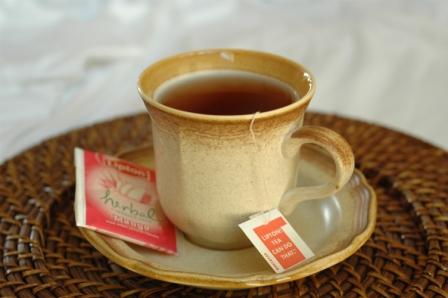
- Avoid or limit coffee. Acid-forming and dehydrating, the ubiquitous morning beverage does your body few favors. Try drinking the aforementioned teas instead. Another option, though I have not yet tried it myself, is Teeccino, a caffeine-free, mineral-rich, alkalizing coffee substitute. I know several former coffee-drinkers who are very pleased with Teeccino’s taste. I have heard that the Mayan line most resembles a dark-roast coffee. Kat James highly recommends this product in her book, The Truth about Beauty. You can find Teeccino at Whole Foods and other health food stores, through co-ops, and online. I can’t wait to try it!
Prioritize Between-Meal Drinking
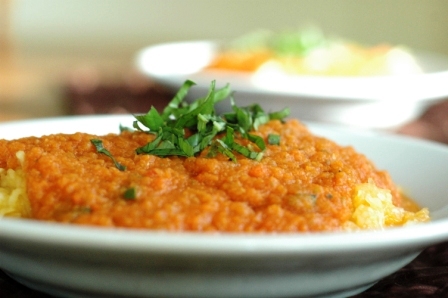
One of the times not to drink large amounts of water is immediately before, during, or after a meal. Because water dilutes your digestive juices, overdoing it will render your digestion slower and less effective. This, in turn, impedes your body’s absorption of nutrients.
I know that mealtime is often the easiest time of day to drink water because it is right in front of you. For years, I drank the majority of my water with meals, partly out of ignorance and partly out of my lack of planning. The best way I have found to get my water intake between meals is to carry a water bottle or, if I am at home, to keep a large glass of water within my sight at all times.
Of course, if you’re feeling dehydrated, I think that it’s important to go ahead and drink plenty of water, even if it is at mealtime. When you have choice, though, do try to avoid drinking lots of water with your food.
Prioritize Water Quality
A number of factors can influence the quality of the water you drink, including the water temperature, its source, and how you store it. Here are a few suggestions to make sure that you’re drinking the highest quality water:
- Consider drinking your water at room temperature. It is widely believed in the alternative health community that cold water puts extra strain on the body. Many claim that, in particular, the liver suffers from cold water. I still drink cold water sometimes, but I do try to keep most of it room-temperature or warmer.
- Avoid plain tap water, particularly if yours is fluoridated. You can choose from a variety of purification options at many price points. Although the more expensive filters, like the ones offered by Nikken (recommended by Kat James in The Truth about Beauty), may be most effective, it seems to me that any purification is better than no purification. Personally, I use the Aquasana countertop filter. Retailing at about $100 (U.S.), it is far more affordable than many other options and still offers impressive reduction of chlorine, lead, synthetic chemicals, volatile organic compounds (VOCs), cysts, and parasites. The water tastes better too! Of course, reverse osmosis and distilling systems are other options, with distillers creating the absolute cleanest water. But water quality entails more than purity. (For more about problems with fluoride, you can check out a previous post on the topic here.)
- Don’t forget the importance of mineral content. Distilling water removes not only the bad stuff, it strips the water’s beneficial mineral content too. Our bodies desperately need minerals, and our depleted soil and mineral-poor water have created mineral deficiencies in almost everyone. If you choose distilled water, add back some minerals. Many products exist for this purpose, like alkalizing mineral drops. Just ask an associate at your local health food store to point you in the right direction. If bottled water is more your style and you’re not afraid to shell out the cash, consider ordering Mountain Valley Spring water delivered to your door. Pure, rich in minerals, and available in glass bottles, this water is recommended by naturopaths, chiropractors, and holistic medical doctors everywhere.
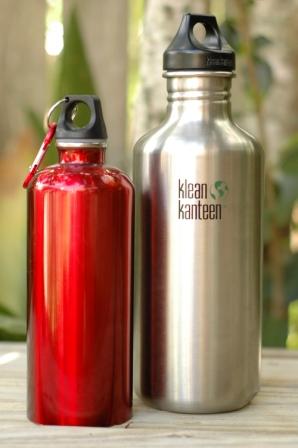
- Store your water smartly. The very best way to store water is in glass or stainless steel as many plastic containers will leach toxins into their contents. For this reason, re-using bottled water bottles does not serve your health, even if it seems environmentally responsible. A better option might be to purify your own water at home and bring it with you in your own. If you choose to use polycarbonate bottles, like those made by Nalgene, do not place them in the dishwasher, but wash them by hand with a mild soap. Try not to leave them in a hot car either. These precautions will reduce the possibility of PBA leaching. Personally, I prefer stainless steel water bottles. While they are bit pricey, they are virtually indestructible and do not leach toxins. For a point-by-point comparison of two popular brands, Klean Kanteen and New Wave Enviro, you can check out this post.
Learning to prioritize morning hydration, between-meal drinking, and water quality have helped me tremendously in my pursuit of more vibrant health. I hope that some of these suggestions will be useful for you as well!
Alison is a wife (who still feels like a newlywed after a couple of years), an undergraduate student (who is eager to be done), the owner of two adorable dogs, and a future mother and homemaker extraordinaire. You can get to know her and receive much nutritional, health and cooking related inspiration at her blog, Pennythoughts.



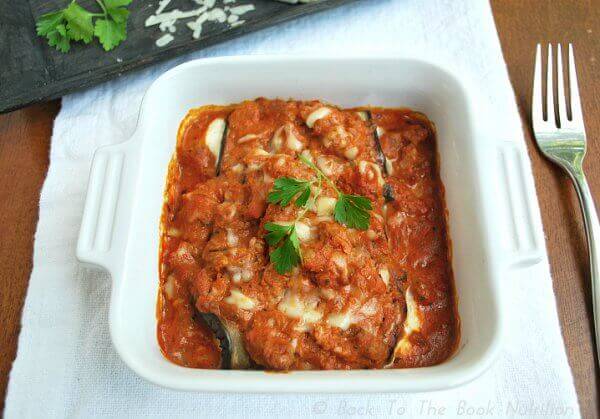
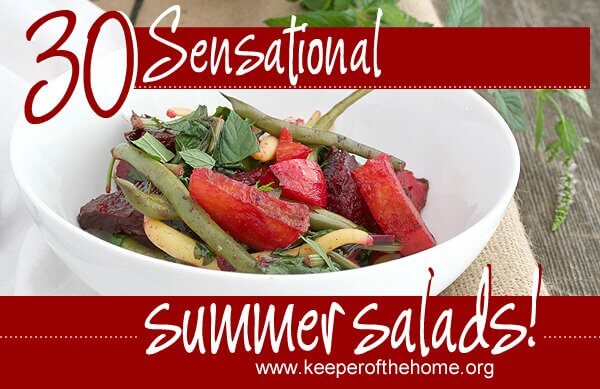

Just thought I would add that I love Teeccino and drink it often! It is the best of the coffee alternatives that I have tried, and I’ve tried quite a few.
Brewed like espresso, with some lightly heated and frothed raw milk, it is absolutely incredible. Mmmm… I might need to go make myself one!
I very much neede this reminder! I find I end up not drinking a thing until well after lunch. Then I am sluggish and tired and needing a nap.
That was fascinating! I had to stop reading and go grab a glass of water before I could finish the post. 😉 I knew about drinking a lot of water, but I did not know about drinking most of it in the morning or that room temp was better. Thanks for the info!
Hi Alison! (And thanks for hosting, Stephanie!)
Drinking loads of water has a tremendous impact on how I feel during the day. If I’m not getting enough to drink, I start to feel exhausted and dizzy. I carry a water bottle almost everywhere I go — even to bed!
While I’ve trained myself to drink room temperature water (when I lived overseas, nobody used ice cubes), I do keep a pitcher of water in the fridge. For some reason I just do better at drinking water from the fridge. Possibly because I know it took a minute amount of electricity to cool it and I’m too cheap to waste that?? Whatever works, I guess. 🙂
Until this post, I’ve not ever heard of negative effects of cold water intake; however, ice water has been touted (by sources I consider reliable) as a weight-loss strategy because of the calories burned in bringing the water up to body temperature. I haven’t needed to try it, but basic math proves that it works.
I drink room-temp water simply because I like it better, but I’m skeptical that ice water has negative effects on the body. My guess would be that by the time any liquid makes it to the liver, it’s already pretty warm. Are there any studies that show results to the contrary?
Great tips, thanks so much!!
ToilingAnt,
The room-temperature water is something I do as a “why not?” kind of practice. I am not aware of any studies about the negative effects of cold water, but I do know that traditional Chinese medicine maintains that room temperature water is better. Since I am becoming increasingly impressed with much of Eastern medicine (though not all of it!), it doesn’t bother me to incorporate such a simple practice into my daily life.
As for the claim of cold water promoting calorie-burning, I’ve heard that too. I’ve also read recommendations that you should keep your house cold in the winter to burn more calories. My question is, does that really help the body? Shouldn’t we be making it easier, rather than harder, for our bodies to function at their best? I guess it just makes intuitive sense to me to eat foods that are easy for my body to digest, hydrate in a way that creates the least work for my body, and keep my body in an environment that supports it.
As you pointed out, there *aren’t* any studies of which I am aware that support the practice of drinking room-temperature water, so it’s really just a point worth pondering. Of all of the information I included in the post, I think this is by far the least important. It’s something I do personally, but I completely understand others deciding otherwise. 🙂
Great insight! I drink a lot of water and decided to use a reusable glass bottle to carry instead of plastic. That costs just a dollar when filled with juice. If you don’t drop it, it will last for a lifetime and it’s easy to clean. I refill it with pure water from a bottleless water cooler with reverse osmosis filters. The water is pure and taste great and there is only a small cost and no waste. Everything I hear recently about bottled water is making me think about the water I drink.
Can you replace apple cider vinegar for lemon for your
morning tonic and get the same benefits? Great post
Alison. Very informative especially about having half of your water in the morning.
Alison may want to respond to this, but Karen, I would say yes. Apple cider vinegar can be a great morning tonic, and it helps to stimulate digestion as well.
This was great to read! Thanks! 🙂
Blessings,
Michele
Karen,
Oh, absolutely! I considered adding info on apple cider vinegar to the post, but it was already so long. Apple cider vinegar, provided that it is unpasteurized, is highly alkalizing and even gives you a dose of probiotics. I would just be careful not to get the water too hot or it would kill all of those good bugs. 🙂 I’ve tried mixing raw ACV in warm water with a little stevia to make it more palatable, and I’ve read of others using honey. I must admit that the taste doesn’t thrill me the same way lemon does, but it’s a wonderfully healthy choice and one that I should make more often!
Thanks for the tips! I used to suffer from horrible migraine headaches before I realized that they were being triggered by dehydration. I bought a stainless steel water bottle and started taking it with me everywhere, forcing myself to drink more water (I generally don’t feel thirsty until it is too late). The only time I get a headache now is if I get really busy and neglect my hydration routine. Unfortunately, once I have a migraine it sticks around for about 48 hours regardless of how much I drink=( It is so important to get enough water!
I have been squeezing lemon (from an organic
100% lemon juice container that I buy at WholeFoods) into my type #1 water bottle every day for nearly a year now.
But after reading that acidic food can release toxins in plastic that will leach into food, I am concerned.
I have been asking this question on many forums, but so far no one has given me a definitive answer, so I’m hoping you can.
I do know that although lemon contains citric acid, it somehow alkaline-izes the body when introduced to water…so I’m not sure if that means my practice is safe.
PLEASE advise.
Thanks in advance!
J from San Jose
Can you please tell me if
Great article, I’ve heard the lemony water thing before, I think I’ll give it a try.
Cheers
This is a good post. I have tried Teecino. You can order a sampler pack on their website and it has all 12 flavors. My husband loves coffee, and he really enjoyed Teecino. Which reminds me that he requested that I order more. I think you can tell the difference between that and coffee, but it is a good alternative. Hope this rambling helps someone lol
It leaches BPA into the water. Not PBA…
@Omar,
But Great article I might add!